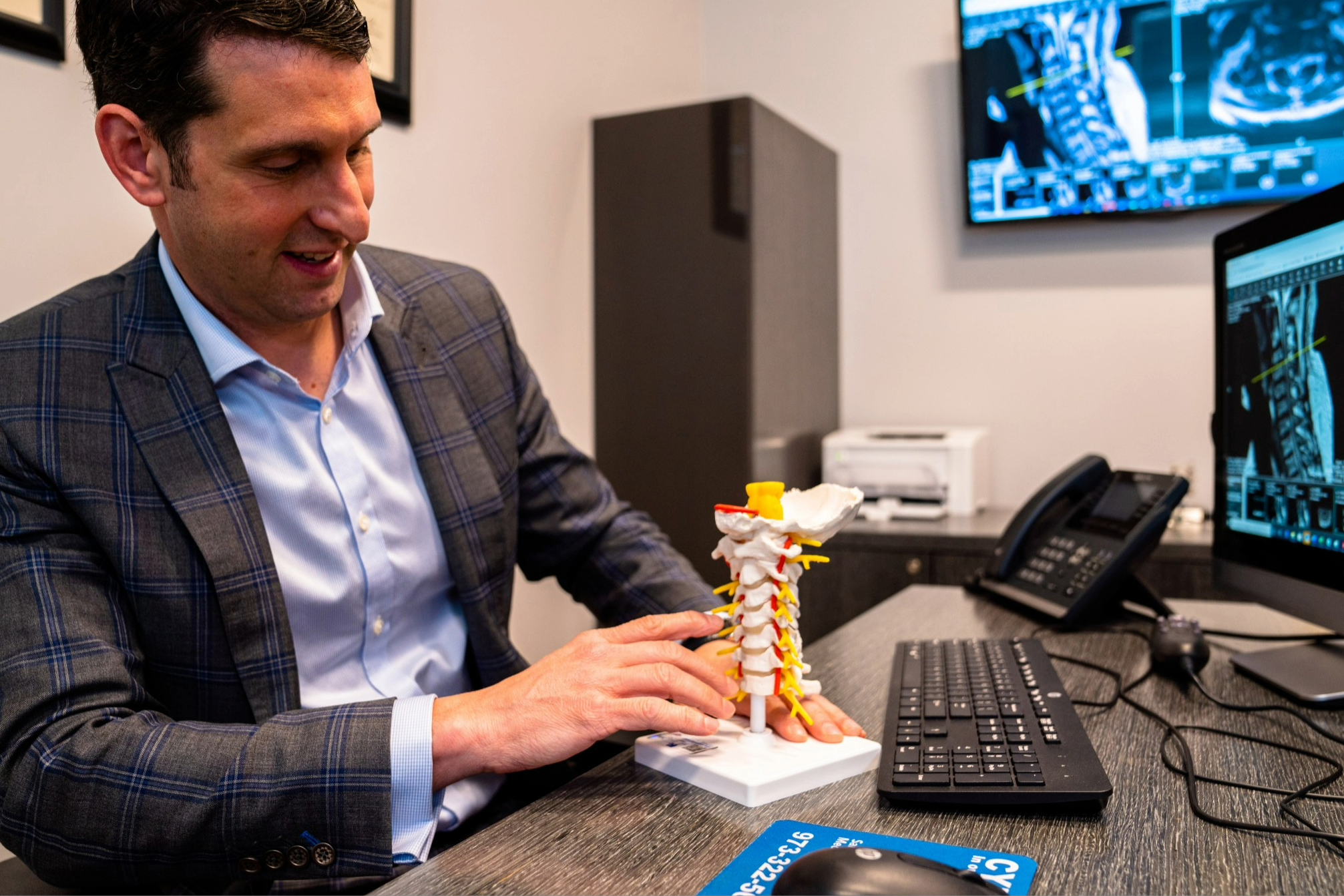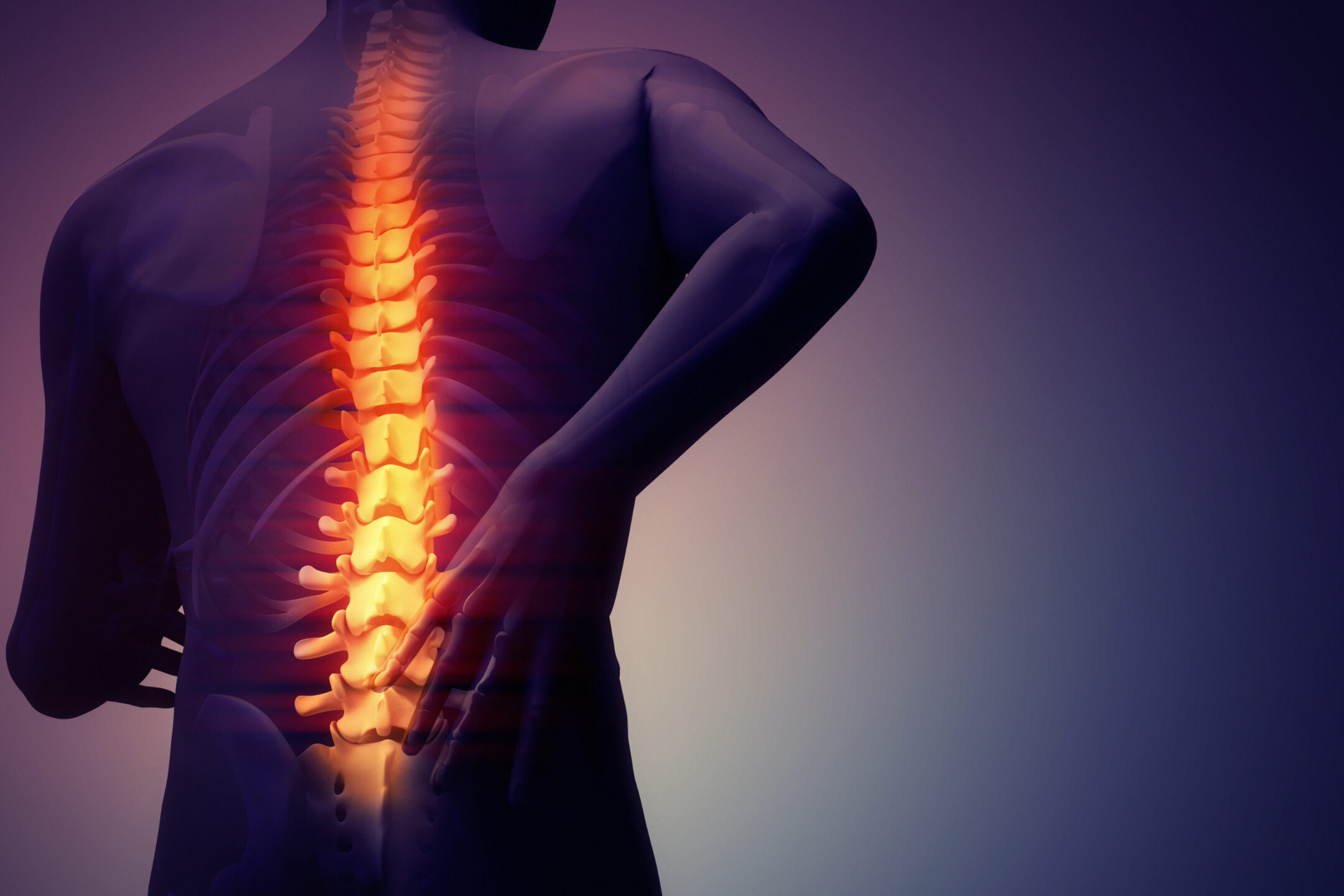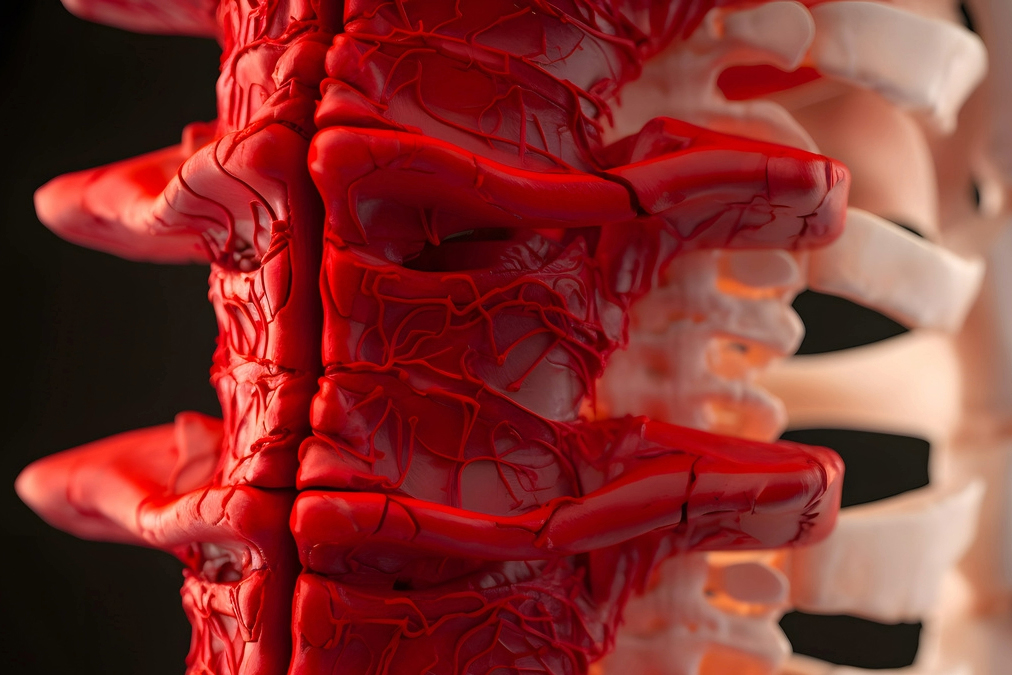Filter By Location
Show All Locations
Eatontown
Edison
Glen Ridge
Holmdel
Livingston
Morristown
Nyack
Paterson
Ridgewood
Toms River
Wayne
Lumbar spine surgery can relieve chronic back pain, pinched nerves, and mobility issues that interfere with daily life. Our spine specialists offer both traditional and minimally invasive surgical options to help you return to what you love.
Our specialized approach to lumbar spine care focuses on advanced techniques that promote faster healing and better outcomes for our patients.
Lumbar spine fusion permanently joins two or more vertebrae in the lower back to reduce pain and increase stability. Our surgeons tailor the procedure based on your specific condition.
Our board-certified surgeons are experienced in treating complex lumbar spine conditions. They are trained in both traditional and minimally invasive surgical techniques and provide personalized care tailored to your specific needs.
At Neurosurgeons of New Jersey, we’re one of the few neurosurgical practices in the state that accepts all major insurance plans. Partnered with a vast network of in-network insurance providers, we work with you to get the care you deserve, making high-quality lumbar spine care more accessible. Our insurance specialists can check your coverage and help navigate the approval process with you.








Find convenient care at one of our locations across New Jersey and New York. Each office is equipped with advanced diagnostic tools and staffed by our experienced spine care team.
Schedule your consultation today: 551-284-3265
1200 East Ridgewood Ave, Suite 200 & 209
Ridgewood, NJ 07450
201-327-8600
St. Barnabas ACC
200 South Orange Avenue, Suite 265
Livingston, NJ 07039
973-577-2888
745 Hope Road,
Eatontown, NJ 07724
732-222-8866
530 Lakehurst Road
Toms River, NJ 08755
732-222-8866
703 Main Street, Suite A2404
Paterson, NJ 07503
973-754-2463
311 Bay Avenue, Suite 201
Glen Ridge, NJ 07028
973-577-2883
3840 Park Ave, Suite 103B
Edison, NJ 08820
732-372-7085
1680 Route 23 North, Suite 300
Wayne, NJ 07470
973-782-6073
10 Waldron Avenue
Nyack, NY 10960
845-535-1655
Bell Wellness
101 Crawfords Corner Road, Holmdel, NJ 07733
732-222-8866
Need more information? Contact us at 551-284-3265 to schedule a consultation with one of our cervical spine specialists.
Surgery is usually considered after conservative treatments—like physical therapy, medications, or injections—fail to relieve symptoms over several months. You may need surgery if you experience persistent back pain, leg numbness or weakness, or difficulty walking that disrupts daily life. Your spine specialist will perform a thorough evaluation and review imaging results to determine the best treatment.
Minimally invasive spine surgery uses smaller incisions and specialized tools to access the spine with less muscle disruption. Benefits include less pain, reduced blood loss, shorter hospital stays, and faster recovery compared to traditional open surgery. Not all cases are suitable for minimally invasive techniques; your surgeon will recommend the best approach for your condition.
Recovery depends on the procedure and your overall health. Most patients can walk soon after surgery and return to desk work within 2–4 weeks. Physical therapy typically begins 4–6 weeks post-op. Full recovery, including bone fusion, may take 3–6 months, with some patients continuing to improve for up to a year.
Fusion eliminates motion at the treated levels, but many patients retain overall spinal flexibility. Adjacent segments often compensate for lost motion, and reduced pain often leads to greater activity levels. Your surgeon will explain how your specific fusion might affect your mobility.
Risks include infection, bleeding, nerve injury, and incomplete pain relief. With fusion procedures, there’s a risk of nonunion or stress on adjacent spinal segments. However, serious complications are rare, and our surgical team takes every precaution to minimize risk.
A consultation with one of our specialists is the best way to find out. Factors include your diagnosis, anatomy, surgical history, general health, and lifestyle. Conditions like herniated discs, spinal stenosis, and mild instability often respond well to minimally invasive procedures.
That depends on your job and the type of procedure. Many patients with desk jobs return in 2–4 weeks, while those with physically demanding jobs may need 6–12 weeks or more. Minimally invasive surgeries often allow a faster return. Your doctor will provide a personalized timeline based on your progress.
In early recovery, you’ll manage pain with medication and gradually increase activity. If you had fusion surgery, you may need a back brace. Physical therapy usually starts within 4–6 weeks to rebuild strength and mobility. Follow-up appointments will track healing with imaging and physical exams. Most patients see meaningful symptom improvement within a few months.